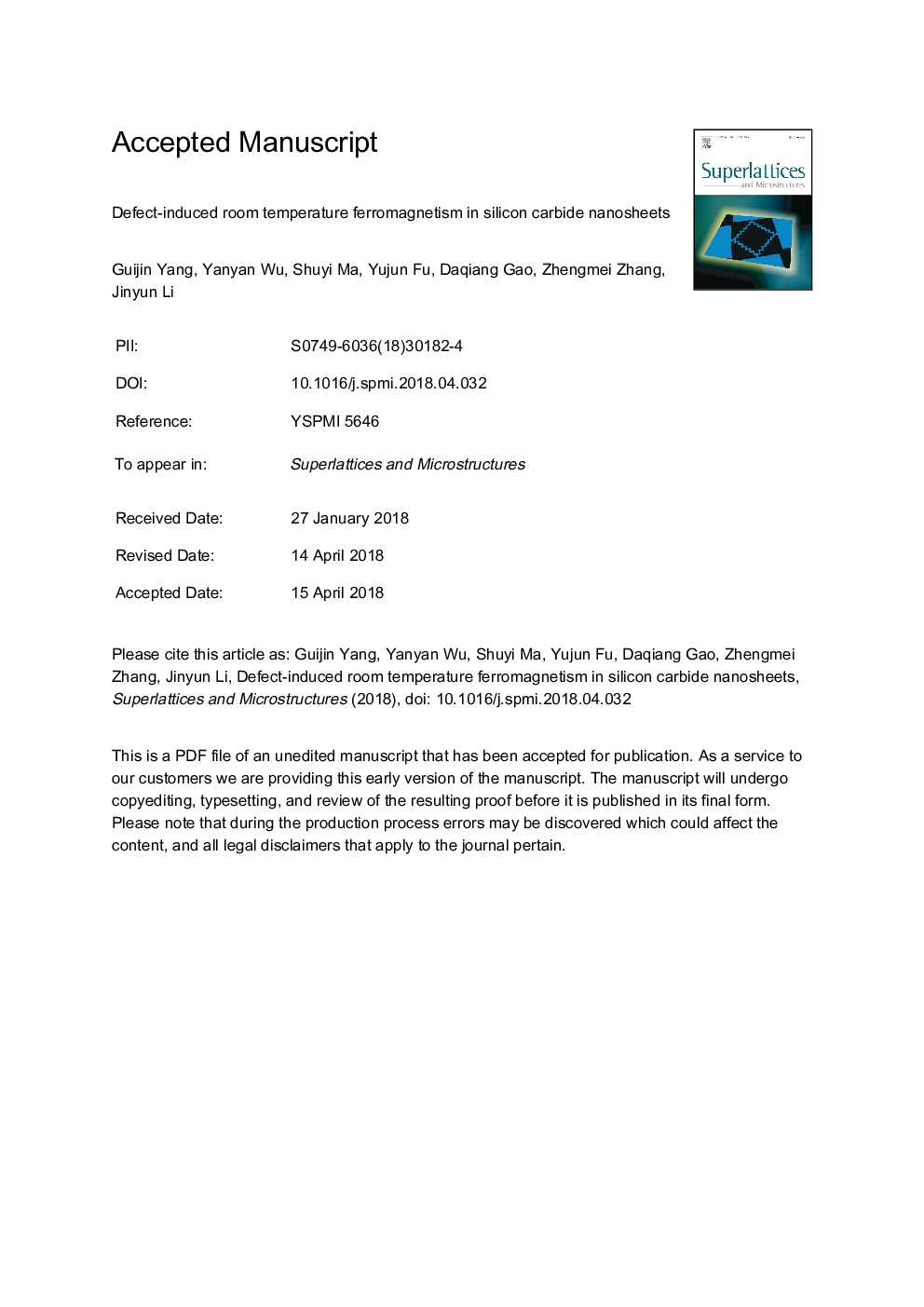| Article ID | Journal | Published Year | Pages | File Type |
|---|---|---|---|---|
| 7938506 | Superlattices and Microstructures | 2018 | 16 Pages |
Abstract
Silicon carbide (SiC) nanosheets with different sizes and thickness were synthesized by a liquid exfoliation method by varying the exfoliating time in the N, N-dimethylformamide organic solvent. During the exfoliating time increasing from 4 to 16â¯h, the size of the SiC nanosheets decreases gradually from 500 to 200â¯nm, and the thickness decreases from 9 to 3.5â¯nm. Results showed that all prepared SiC nanosheets show intrinsic room temperature ferromagnetism, which is greatly different to the diamagnetism nature of virgin bulk SiC. Moreover, the saturation magnetization of the SiC nanosheets increases monotonously from 0.005 to 0.018 emu/g as the size and thickness decrease. Further studies via transmission electron microscopy, superconducting quantum interference device, and electron spin resonance revealed that the origin of the ferromagnetism in SiC nanosheets might be attributed to the defects with carbon dangling bond on the surface of nanosheets.
Related Topics
Physical Sciences and Engineering
Materials Science
Electronic, Optical and Magnetic Materials
Authors
Guijin Yang, Yanyan Wu, Shuyi Ma, Yujun Fu, Daqiang Gao, Zhengmei Zhang, Jinyun Li,
